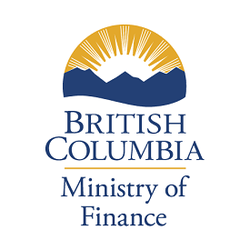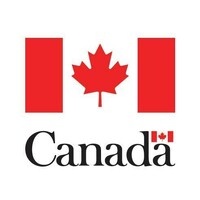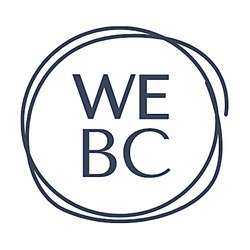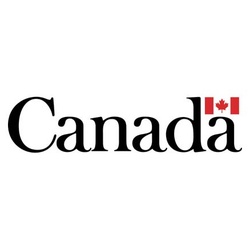
Open
BC Scientific Research & Experimental Development Tax Credit
Last Update: October 27, 2025
BC, Canada
Tax credit for R&D in British Columbia
Tax Credits
At a glance
Funding available
Financing goals
Research and experimental development
Eligible Funding
- Maximum amount : 3,000,000 $
- Up to 10% of project cost
Timeline
- Unspecified
Eligible candidates
Eligible Industries
- Professional, scientific and technical services
Location
- British Columbia
Legal structures
- For-profit business
Annual revenue
- All revenue ranges
Organisation size
- All organization sizes
Audience
- All groups
Overview
Tax credit of 10% for scientific research and experimental development expenditures in British Columbia. Refundable for expenditures under $3 million.
Activities funded
- Projects involving scientific research conducted in British Columbia.
- Experimental development activities aimed at technological advancement or innovation in B.C.
Examples of admissible projects:
$ 180,000
Creating AI algorithms for predictive maintenance in manufacturing plants
$ 30,000
Researching cutting-edge biotechnology for medical diagnostics
$ 27,000
Developing an advanced waste-water treatment system for urban areas
$ 22,000
Creating an innovative mobile app for improving mental health
$ 200,000
Development of a novel biodegradable packaging solution for the food industry
$ 250,000
Innovating sustainable energy solutions for remote communities
Eligibility
- The applicant must be a corporation with a permanent establishment in British Columbia.
- The corporation must carry out scientific research and experimental development (SR&ED) activities within British Columbia.
- The credit can be claimed by Canadian-controlled private corporations (CCPCs) or other qualifying corporations.
- Eligible expenditures must be incurred before September 1, 2027.
Who is eligible?
- Qualifying corporations with a permanent establishment in British Columbia
- Canadian-controlled private corporations (CCPCs) conducting scientific research and experimental development (SR&ED) in British Columbia
- Other qualifying corporations (not CCPCs) carrying out SR&ED in British Columbia
- Active members of partnerships that are qualifying corporations with SR&ED activities in British Columbia
Eligible expenses
- Qualified expenditures related to scientific research and experimental development (SR&ED) activities carried out in British Columbia.
Eligible geographic areas
- Corporations with a permanent establishment in British Columbia.
How to apply
1
Verify Eligibility
- Ensure that your corporation qualifies as a Canadian-controlled private corporation (CCPC) engaged in SR&ED in B.C. before the applicable date.
- Review the eligibility requirements in the bulletin, British Columbia Scientific Research and Experimental Development Tax Credit (CIT 007).
2
Gather Documentation
Collect all necessary documents related to SR&ED expenditures, including financial statements and technical reports, for the tax year.
3
Complete Forms
- Fill out the British Columbia Scientific Research and Experimental Development Tax Credit (T666) form.
- Prepare your T2 Corporation Income Tax Return, including Schedule 5, Tax Calculation Supplementary – Corporations.
4
Claim Credit in Tax Return
- Enter the refundable credit amount on line 674 of Schedule 5.
- Enter the non-refundable credit amount on line 659 of Schedule 5.
5
Submit Tax Return
Submit your completed T2 Corporation Income Tax Return and the T666 form to the Canada Revenue Agency (CRA).
6
Meet Deadlines
Ensure that the claim is made no later than 18 months after the end of the tax year in which the qualified expenditures were incurred.
Additional information
- If property used in SR&ED is sold or converted to commercial use within 10 years, a recapture of credits previously claimed may be required.
- Active partners in partnerships may claim a share of the partnership’s non-refundable credit if they are qualifying corporations.
- Questions regarding the credit can be directed to designated government contacts via phone or email.
- The British Columbia Income Tax Act, Part 6, outlines legislative requirements for this tax credit program.
Contacts
itbtaxquestions@gov.bc.ca
1-877-387-3332
BC, Canada
Apply to this program
Frequently Asked Questions about the BC Scientific Research & Experimental Development Tax Credit Program
Here are answers to the most common questions about the BC Scientific Research & Experimental Development Tax Credit. This section explains what the program is, how much funding is available, eligibility requirements, application deadlines, and other important details to help you determine if this grant is right for your business.
What is the BC Scientific Research & Experimental Development Tax Credit?
How much funding can be received?
Who is eligible for the BC Scientific Research & Experimental Development Tax Credit program?
What expenses are eligible under BC Scientific Research & Experimental Development Tax Credit?
Who can I contact for more information about the BC Scientific Research & Experimental Development Tax Credit?
Where is the BC Scientific Research & Experimental Development Tax Credit available?
Is the BC Scientific Research & Experimental Development Tax Credit a grant, loan, or tax credit?
Apply to this program
More programs like this

Grant and FundingClosed
Business Scale-up and Productivity in British Columbia
Pacific Economic Development Canada (PacifiCan)PacifiCan's BSP supports high-growth business innovation and scale-up

Grant and FundingClosed
Innovate BC — Ignite Program
Innovate BCMoney to accelerate British Columbia innovation in natural resources and applied science

Grant and FundingClosed
Genome British Columbia — GeneSolve Program
Genome British ColumbiaSupports genomics research to solve sector challenges in British Columbia

Grant and FundingOpen
Genome British Columbia — Sector Innovation Program
Genome British ColumbiaFunds genomics research addressing strategic challenges in key BC sectors

Grant and FundingClosed
Genome British Columbia — Genomics Innovation Fund – Intake 002
Genome British ColumbiaSupports commercialization-focused genomics innovation projects across British Columbia

Grant and FundingClosed
Innovate BC — Innovator Skills Initiative (ISI)
Government of British ColumbiaWage subsidy for B.C's tech sector

Grant and FundingClosed
Funding for the Fraser River Freshwater Ecosystem Initiative
Canada Water Agency (CWA)Supports projects improving Fraser River Basin water quality and ecosystem health

Other SupportExpert AdviceOpen
WeBC — Business Mentoring and Peer Groups
WeBCMentors for women entrepreneurs in B.C

Grant and FundingClosed
Innovate BC — BC Fast Pilot program
Government of British ColumbiaMoney for pilots and commercialization in B.C

Grant and FundingOpen
Regional Tariff Response Initiative (RTRI) — British Columbia
Government of CanadaSupports B.C. businesses adapting to tariff-related trade disruptions
Sign up to our platform to access the BC Scientific Research & Experimental Development Tax Credit information sheet for free
Get access to 4,000+ programs, practical guides, personalized alerts, and an AI assistant to support your grant applications.